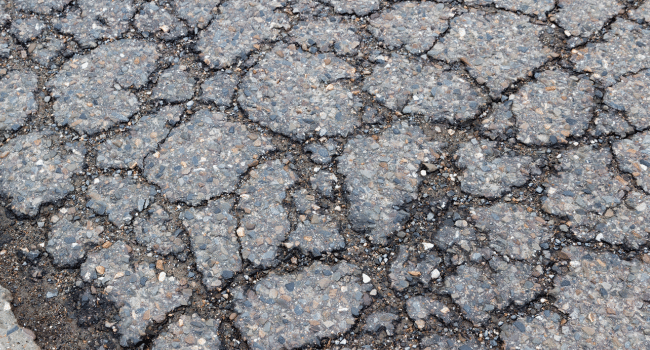Table of Contents
Asphalt pavement is a durable and cost-effective option for roadways, parking lots, and driveways. However, over time, asphalt can experience various types of damage due to oxidation, cracks, potholes, large holes, ruts, uneven depressions, or crumbling. In this article, we will explore four of the most effective repair methods for addressing different categories of asphalt damage and restoring the integrity of your pavement. Residential asphalt driveway contractors offer expert repair services to restore damaged or worn asphalt driveways to their original condition.
Category 1: Oxidation. The Solution: Sealcoating
Oxidation is a common form of asphalt damage caused by exposure to sunlight, oxygen, and other environmental factors. Over time, the asphalt’s surface can become faded, brittle, and prone to cracking. The solution for addressing oxidation is sealcoating, which involves applying a protective layer of sealant to the surface of the asphalt. Sealcoating helps to restore the color and appearance of the pavement, protect it from UV rays, and prevent further damage from oxidation, water intrusion, and chemicals.
Category 2: Cracks and Minor Potholes. The Solution: Crack and Pothole Repair
Cracks and minor potholes are common forms of asphalt damage that can occur due to freeze-thaw cycles, heavy traffic, or natural wear and tear. These damages can be addressed through crack and pothole repair methods. Crack repair involves cleaning the cracks, filling them with a suitable crack filler, and sealing the surface. Pothole repair involves removing the damaged asphalt, filling the hole with asphalt patching material, and compacting it to create a smooth and even surface.
Category 3: Large Holes, Ruts, and Uneven Depressions. The Solution: Cut, Patch, and Sealcoat
Large holes, ruts, and uneven depressions in asphalt pavement can occur due to heavy traffic, water damage, or poor initial installation. These damages require more extensive repairs to restore the pavement’s integrity. The solution for addressing these issues is a multi-step process involving cutting out the damaged area, patching it with new asphalt, and then sealcoating the entire surface. This method helps to create a smooth and even surface, eliminate trip hazards, and prevent further damage, see more information on asphaltkingdom.com.
Category 4: Crumbling Asphalt. The Solution: Repaving Damaged Asphalt
Crumbling asphalt is a severe form of damage where the pavement has deteriorated to the point of being beyond repair. In such cases, the most effective solution is to remove the damaged asphalt and repave the entire area. Repaving involves removing the old pavement, preparing the base, and installing a new layer of asphalt. This method provides a long-term solution for restoring the functionality and appearance of the pavement.
In conclusion, timely and effective repair methods are crucial for addressing asphalt damage and maintaining the durability and safety of your pavement. Whether it’s oxidation, cracks, potholes, large holes, ruts, uneven depressions, or crumbling asphalt, selecting the appropriate repair method based on the severity of the damage is essential. Sealcoating, crack and pothole repair, cut, patch, and sealcoat, and repaving are some of the most effective methods for restoring the integrity of your asphalt pavement and prolonging its lifespan. Consulting with a professional asphalt contractor can help you determine the best repair approach for your specific situation and ensure a successful outcome.
